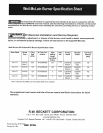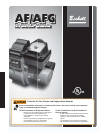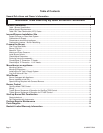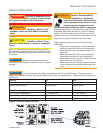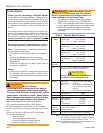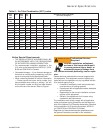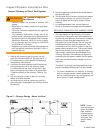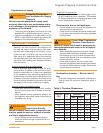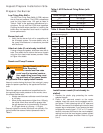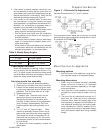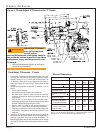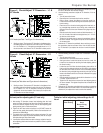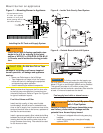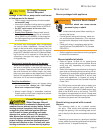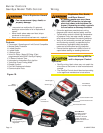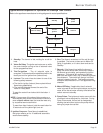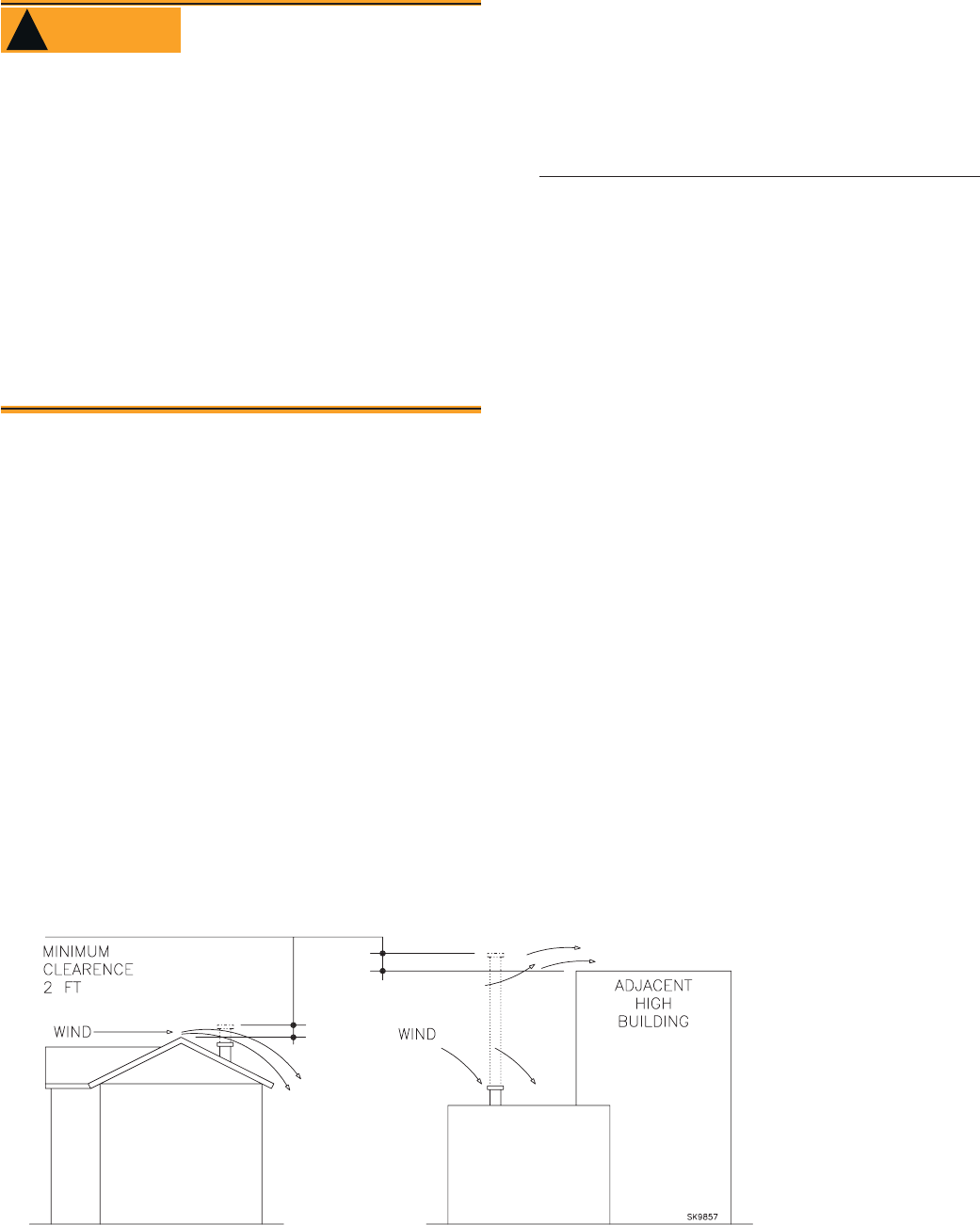
Page 6 6104BAFG R06
Carefully inspect the chimney or exhaust vent
system.
Make sure it is properly sized and in good work-
ing condition.
Follow the instructions supplied by the appliance
manufacturer.
The installation must strictly comply with all ap-
plicable codes, authorities having jurisdiction and
the latest revision of the National Fire Protection
Association Standard NFPA 31 for the installa-
tion of chimneys and vent sizing, (or CSA-B139
and CSA-B140 in Canada).
Regulation by these authorities take precedence
over the general instructions provided in this in-
stallation manual.
y
y
y
y
y
Fire, Smoke & Asphyxia-
tion Hazard
WARNING
!
No other appliance connection should be made to
the same fl ue pipe.
The fl ue pipe should have an upward pitch toward
the chimney of at least 1/4” per foot of length. It
should fi t tightly and should not project into the
chimney.
Any leakage between tiles, around clean-out
doors, or around the vent pipe should be sealed.
INSULATED STAINLESS STEEL CHIMNEY LINERS
The new designs of high effi ciency oil furnaces
and boilers in conjunction with fl ame retention oil
burners are more effi cient. One result of increased
effi ciency is lower fl ue gas temperatures. As
fl ue gases rise in the chimney, they will cool and
condense when they reach the dew point. The
condensation will mix with the sulphur in the fl ue
gases creating sulphuric acid. The acid will attack
the chimney mortar, brick and clay liners caus-
ing corrosion, deterioration and blockage of the
chimney. Eventually the blockage could prevent
exhausting the fl ue gases. Instead, the fl ue gases
could vent out the barometric damper into the liv-
ing space.
Therefore, it is strongly recommended that an ap-
proved insulated stainless steel liner be installed.
For those installations not requiring a chimney,
such as through-the-wall vented appliances, fol-
low the instructions given by the appliance and
power venter (if used) manufacturers.
5.
6.
7.
y
Inspect Chimney or Direct Vent System
Figure 2 – Chimney Design - Above the Roof
NOTE: Correct
chimney design is
shown by dotted
lines. Incorrect
chimney design,
as shown by the
solid lines, may
result in down-
drafts.
Inspect/Prepare Installation Site
Starting with minimum gph fi ring rate, the mini-
mum size recommended is 6” fl ue pipe with 8” X
8” inside chimney, unless specifi ed otherwise by
the appliance manufacturer.
A chimney fl ue shall extend at least 3 feet above
the highest point at which the chimney comes
in contact with the roof, and not less than 2 feet
above the highest roof surface or structure within
10 feet horizontally of the chimney. Refer to Fig-
ure 2.
Any accumulation of soot or debris in chimney
offsets should be removed
Any obstructions such as a protruding joint or a
piece of broken tile wedged in the chimney should
be removed.
1.
2.
3.
4.



